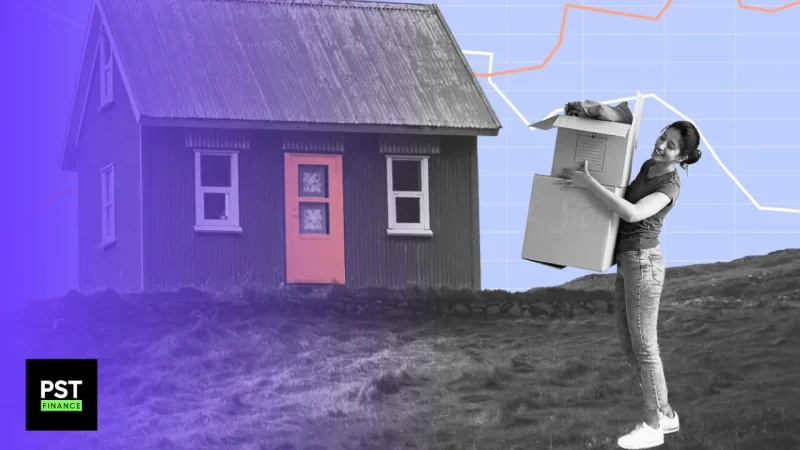If you’re a prospective homeowner, you surely know how daunting the task of deciding which house to buy can be. It’s overwhelming to sift through listings and schedule viewings, and what’s even worse is the fact that you could end up spending much more than you need due to a lot of hidden costs that can be avoided. To help avoid all of these troubles, here are some home buying tips to help you navigate the process of buying a new house by focusing on the many costly mistakes new homeowners often make, which can be easily avoided.
Where to Buy the House
Before you get into the home buying tips, you should remember throughout the whole process of home buying that you’re not necessarily going to live in whatever house you’ll buy for the rest of your life. Statistically speaking, many people tend to move at least once at some point in their lives. Therefore, you need to ask yourself first whether you’re sure for some reason that you’re going to live for a very long time in the house you’re looking for or whether you will be willing to sell it and move somewhere else a few years from now.
Planning for the future this way will help you make a series of important decisions regarding where to buy. First, you should take a look at the housing market in the area you’re considering before deciding to buy property there. The reason is simple: if your plans include selling your house in a few years, you want to make as much money as possible when you do so. But, this would be difficult in some areas. Suppose you bought a house in a remote town where only a few live. The housing market in such a place would be so small and stale that you wouldn’t be able to get competitive offers for your house. It’s recommended, then, that you buy a house in a big city with a population of around 500,000 people or more, especially if you’re looking to make a profit or just break even after moving in the future.
Another closely related factor is the appreciation value of your home. It’s true that betting on appreciation is never a surefire way of making money and isn’t an essential strategy for real estate investors, because many variables are involved in the short-term, and a lot could go wrong. For example, an economic recession or a natural disaster could tank the value of homes in a certain area.
But, this doesn’t mean it’s completely irrelevant. In the long-term, houses have historically increased in value by 3% to 5%, which is good for you if you don’t plan on moving anytime soon. Moreover, depending on the neighborhood, the stability of the market, and the number of people flocking to your area, your house could see a notable increase in value in just a few years. Generally speaking, do your homework and research the area you’re buying in very well.
How Much You Should Pay
After finding out which area you want to live in, you should start thinking about your budget. Check your credit report and try to get pre-approved for a mortgage from your bank. This way, you will have an initial idea of the price range you want to stay within. However, be careful: the amount you get approved for isn’t necessarily what you can really afford because sometimes, banks can give you a mortgage that you can afford in theory but will force you to live on a tight budget.
Use the pre-approved amount only as an estimation, and don’t aim for more than what you can afford. Keep in mind that you could always sell your house and move somewhere else, so don’t aim for the most expensive house because you feel like this is a lifetime investment.
Looking for the House
It’s crucial to be aware of the many costs involved in the process of looking for the house. Many people think that the mortgage and down payment are everything they need to care about, which couldn’t be further from the truth. You should save up for a 20% down payment. The bigger your down payment, the more money you will save on monthly payments, which can be a lot. Note that most of your monthly payments go toward paying off the interest rather than the principal.
For example, let’s say that the total price of the house you want to buy is $440,000. Assume it is a 30-year mortgage plan with an APR of 3.42% and a down payment of 20% or $88,000. The principal you will have to pay in such a case is $352,000, and the total interest value will be around $211,385. This makes for a monthly payment of around $1,565. On the other hand, if you make a %15 down payment, which is equal to $65,000, you’d be required to pay around $1,900 monthly, that’s $330 more than the first option. This means that if you pay $23,000 less for your down payment, you will lose more than that in just six years, and your total loss will exceed $118,000 at the end of the 30-year term. This increase is to be accounted for by Private Mortgage Insurance (PMI), which is typically required when your down payment is less than 20% and can get quite pricey.
With that said, it’s not an absolute rule that you should always save for a 20% down payment; it all comes down to your financial situation, but it’s something to keep in mind anyway. Also, don’t think about withdrawing from your emergency fund to cover the down payment; needing to buy a house is usually not an emergency.
On top of this, the monthly payments don’t account for property taxes, as property taxes are not part of the mortgage itself, despite many people thinking otherwise. Property taxes obviously vary from place to place, and researching them is part of your homework. This is not to mention the monthly cost of homeowners insurance, too. One way of dealing with this is to get a 15-year mortgage plan as opposed to a 30-year one because interest typically tends to be lower in the case of shorter-term ones. Furthermore, you could always consider refinancing your mortgage for lower interest rates. It goes without saying that you should do a lot of research to find and compare different interest rates and payment plans offered by different lenders.
The Hidden Repair Costs
The most notable of the hidden costs when it comes to buying a house is repair costs. When you go take a look at a potential house, don’t focus too much on easily replaceable stuff. It’s too easy to feel like the house is in perfect condition when it has new curtains or freshly painted walls. But, you should be on the lookout for things like plumbing, cracks in the wall, the condition of the ceiling, etc.
Many new homeowners pay significant amounts of money on renovations that could have been avoided. Always find a good home inspector to help uncover problems with your potential future house. These problems can also vary quite a lot depending on the area. If it’s snowing where you’re at, don’t go inspecting houses now since a lot of issues may get covered up by the snow, and the inspection process will overall be too difficult. If the area is in danger of getting flooded, take flood insurance into consideration and see whether the state of the house can withstand floods.
The Bottom Line
There are a lot of ways people can save money when buying a new house, but a lot of new homeowners are unfortunately unaware of them. Hopefully, you now know what to remember and watch out for when you buy a new house, which can help you increase your chances of making a profit if you decide to resell it in the future.
It’s important to research the area you want to buy a house in well, and do your own due diligence, so you can truly enjoy your new home.
Disclaimer
Please visit and read our disclaimer here.









